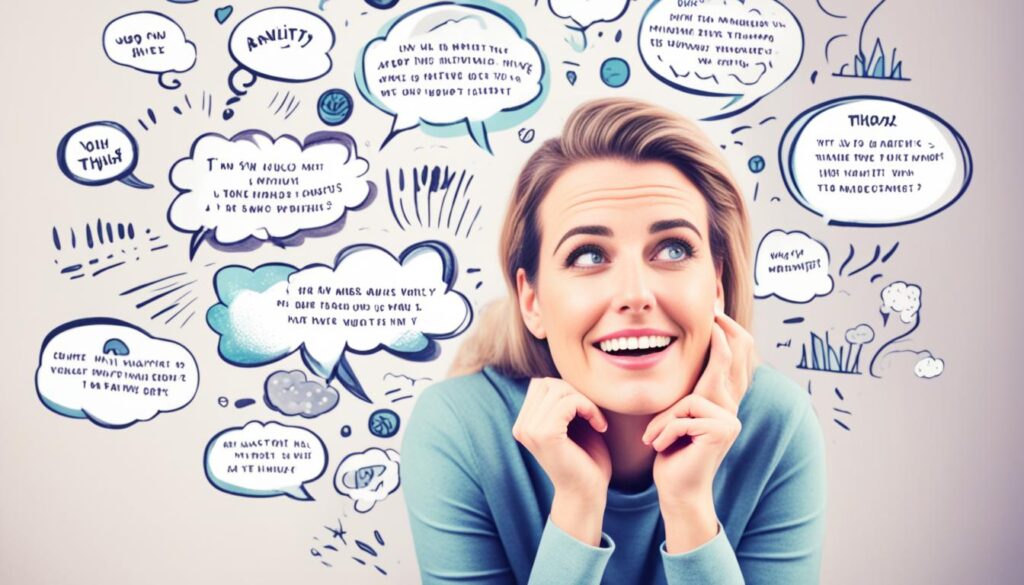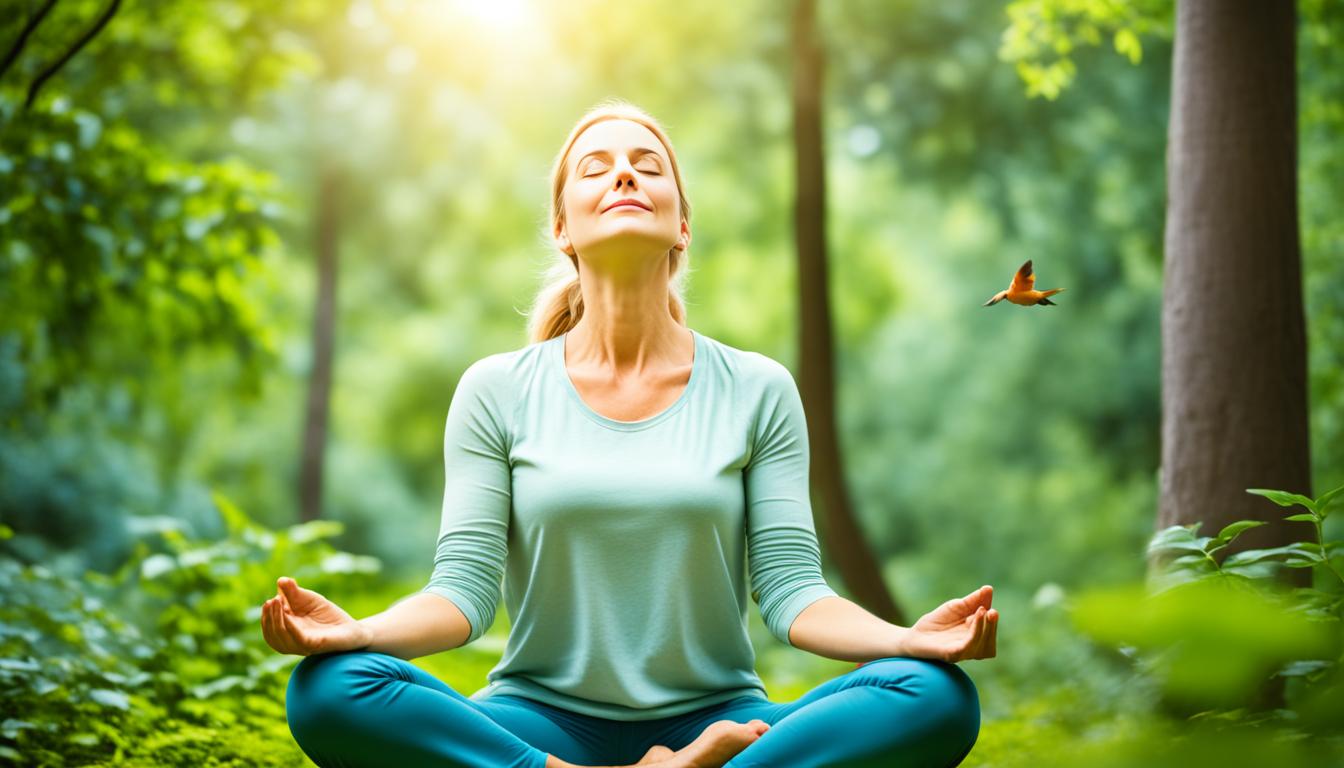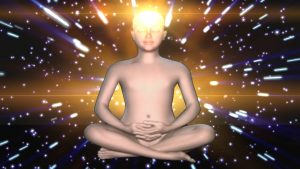Welcome to our comprehensive guide on self-treating generalized anxiety disorder (GAD). GAD is a common mental condition that can have a significant impact on our daily lives. While seeking professional treatment is important, there are also effective self-treatment options available for managing GAD. In this article,
we will explore various strategies and techniques that you can use to manage GAD on your own, from incorporating lifestyle changes to utilizing mindfulness practices and self-care methods. Here we are going learn key factors on how to self treat generalized anxiety disorder.
Key Takeaways:
- Self-treating GAD involves incorporating various strategies and techniques into your daily life.
- Lifestyle changes, such as practicing relaxation techniques and adopting a healthy diet, can help manage GAD symptoms.
- Cognitive-behavioral techniques, such as identifying and challenging negative thoughts, can empower you to actively manage your anxiety.
- Mindfulness and relaxation techniques, including those offered by ManthanHub, can provide relief from anxiety symptoms.
- Self-care methods, like the ManthanHub Brain Rewire and Positive Affirmation, promote overall well-being and resilience.
Understanding Generalized Anxiety Disorder and Self-Treatment
To effectively self-treat generalized anxiety disorder (GAD), it is crucial to have a comprehensive understanding of the condition. GAD is characterized by excessive and persistent worry and anxiety about various areas of life, often accompanied by physical symptoms such as restlessness, fatigue, irritability, and sleep disturbances. It can significantly interfere with daily functioning and quality of life.
What Causes Generalized Anxiety Disorder
The causes of GAD are complex and multifactorial. While the exact aetiology is not fully understood, several factors contribute to its development. These may include:
- Genetics: Family history of anxiety disorders
- Brain chemistry: Neurotransmitter imbalances, particularly with serotonin and norepinephrine
- Environmental factors: Stressful life events, trauma, chronic medical conditions
- Personality traits: High levels of perfectionism, neuroticism, and a tendency to overthink
Examples of Generalized Anxiety Disorder
GAD can manifest in various ways, and the severity of symptoms can vary from person to person. Some common examples of GAD symptoms include:
- Excessive worrying about everyday situations, events, or activities
- Feeling restless or on edge
- Difficulty concentrating or experiencing mind blanks
- Physical symptoms such as muscle tension, headaches, or gastrointestinal distress
- Sleep disturbances, including difficulty falling asleep or staying asleep
First-Line Treatment Options
First-line treatments for GAD typically involve a combination of psychotherapy and medication. Healthcare professionals may recommend the following options:
- Cognitive-Behavioral Therapy (CBT): A form of talk therapy that helps individuals identify and challenge negative thought patterns, develop coping skills, and modify maladaptive behaviors associated with anxiety.
- Medication: Selective serotonin reuptake inhibitors (SSRIs) and serotonin-norepinephrine reuptake inhibitors (SNRIs) are commonly prescribed antidepressants used to manage GAD. Benzodiazepines may be used for short-term relief of severe anxiety symptoms.
- Lifestyle modifications: Engaging in regular physical exercise, practicing stress management techniques such as relaxation exercises and mindfulness, maintaining a balanced diet, and getting adequate sleep.
Effective self-treatment strategies for GAD often build upon these first-line treatment options, incorporating additional techniques and practices tailored to individual needs, preferences, and resources.
How to Self Treat Generalized Anxiety Disorder Without Medication
While medication can be a useful tool in treating Generalized Anxiety Disorder (GAD), some individuals may prefer to manage their symptoms without pharmaceutical intervention. In this section, we will explore non-pharmacological approaches to self-treating GAD, including therapy, relaxation techniques, lifestyle changes, and alternative therapies.
Therapy, such as cognitive-behavioral therapy (CBT) or talk therapy, can be an effective way to manage and reduce anxiety symptoms. Working with a therapist can help individuals identify and challenge negative thought patterns, develop coping mechanisms, and create a self-care routine. Through therapy, individuals can gain a better understanding of their anxiety triggers and learn strategies to manage them.
Relaxation techniques, such as deep breathing exercises, progressive muscle relaxation, and guided imagery, can help reduce anxiety and promote a sense of calm. These techniques can be practiced at home or in a quiet and comfortable environment. Taking time to relax and focus on the present moment can help alleviate anxiety symptoms.
Lifestyle changes can also play a significant role in managing GAD. Engaging in regular physical exercise, such as walking, jogging, or yoga, can help reduce stress and promote overall well-being. Incorporating activities that bring joy and relaxation, such as hobbies, mindfulness practices, or spending time in nature, can also help individuals manage their anxiety levels and improve their mental health.
Alternative therapies, such as acupuncture, massage therapy, or herbal supplements for anxiety, may be considered by individuals seeking natural remedies for GAD. It’s important to consult with a healthcare professional before incorporating any alternative therapies to ensure they are safe and effective for the individual.

| Non-Pharmacological Approaches for Managing GAD | Benefits |
|---|---|
| Therapy (CBT, talk therapy) | – Identifying and challenging negative thoughts – Developing coping mechanisms – Creating a self-care routine |
| Relaxation techniques (deep breathing, progressive muscle relaxation, guided imagery) | – Reducing anxiety – Promoting calmness |
| Lifestyle changes (exercise, hobbies, mindfulness practices) | – Reducing stress – Improving overall well-being |
| Alternative therapies (acupuncture, massage therapy, herbal supplements) | – Natural remedies – Individualized approach |
By exploring and incorporating these non-pharmacological approaches, individuals with GAD can find effective and natural ways to manage their symptoms. It’s important to remember that self-treatment should be accompanied by professional guidance and support when needed. Consulting with a healthcare provider can provide personalized advice and recommendations for managing GAD without medication.
Lifestyle Changes for Managing GAD Symptoms
Lifestyle changes can significantly contribute to managing symptoms of Generalized Anxiety Disorder (GAD). In addition to professional treatment, incorporating anxiety management techniques, practicing at-home anxiety treatment, and adopting a healthy diet and regular exercise routine can play a vital role in reducing anxiety and improving overall well-being.
Anxiety Management Techniques
Anxiety management techniques are effective tools for individuals with GAD to alleviate symptoms and regain a sense of control. By incorporating relaxation exercises, such as deep breathing and progressive muscle relaxation, individuals can promote a sense of calm and reduce the impact of anxiety on their daily lives. Mindfulness practices, such as meditation and grounding techniques, can cultivate present-moment awareness and help manage anxious thoughts and feelings. Engaging in activities that promote relaxation, such as taking warm baths or listening to calming music, can also contribute to anxiety management.
Anxiety Treatment at Home
At-home anxiety treatment provides individuals with GAD the opportunity to implement self-care strategies to manage their symptoms. Creating a supportive and anxiety-friendly environment at home is crucial. This includes establishing a calming space, free from triggers and distractions, where individuals can relax and engage in anxiety-reducing activities. Setting boundaries, practicing self-compassion, and prioritizing self-care activities, such as reading, journaling, or engaging in hobbies, can further contribute to managing anxiety at home.
Healthy Diet and Regular Exercise
A healthy diet and regular exercise are important lifestyle changes that can positively impact GAD symptoms. Consuming a balanced diet rich in nutrients, such as fruits, vegetables, whole grains, lean proteins, and healthy fats, can provide the body with the necessary nutrients for optimal brain health. Avoiding excessive caffeine, alcohol, and processed foods can also help minimize anxiety symptoms. Regular exercise, such as brisk walking, yoga, or cycling, releases endorphins, improves sleep quality, and reduces stress levels, contributing to overall anxiety management.
By incorporating anxiety management techniques, practicing at-home anxiety treatment, and adopting a healthy lifestyle, individuals with GAD can take an active role in managing their symptoms and enhancing their well-being.
Incorporating Cognitive-Behavioral Techniques
Cognitive-behavioral techniques are widely recognized as effective interventions for anxiety disorders, including generalized anxiety disorder (GAD). By incorporating cognitive-behavioral therapy (CBT) techniques into their self-treatment plans, individuals with GAD can take an active role in managing their anxiety.
Cognitive-Behavioral Therapy for Anxiety at Home
CBT is a structured and goal-oriented form of therapy that focuses on identifying and challenging negative thoughts and beliefs that contribute to anxiety. While CBT is typically delivered by trained mental health professionals, there are self-help resources available for individuals who want to practice CBT techniques at home.
Self-help manuals and online programs can guide individuals through the principles and techniques of CBT, allowing them to gain insight into their thought patterns and learn coping strategies. These resources often include worksheets and exercises to help individuals identify and reframe negative thoughts, practice relaxation techniques, and develop healthier behavioral responses to anxiety-provoking situations.
Self-Help Strategies from CBT
There are several self-help strategies derived from CBT that individuals can incorporate into their daily lives to manage GAD:
- Identify and challenge negative thoughts: By becoming aware of negative thoughts and questioning their accuracy, individuals can challenge the irrational thinking patterns that fuel anxiety.
- Implement behavioral changes: CBT encourages individuals to engage in activities that promote well-being and reduce anxiety. This may include gradually facing feared situations, practicing relaxation exercises, or adopting healthy lifestyle habits.
- Utilize relaxation techniques: Relaxation exercises, such as deep breathing, progressive muscle relaxation, and guided imagery, can help individuals calm their minds and bodies during times of heightened anxiety.
By incorporating these self-help strategies into their daily lives, individuals can develop a greater sense of control over their anxiety and improve their overall well-being.
Integrating cognitive-behavioral techniques from therapy into their self-treatment plans empowers individuals with GAD to actively manage their symptoms and improve their quality of life.

| Benefits of Incorporating CBT Techniques | Examples of CBT Strategies |
|---|---|
| Enhanced self-awareness | – Keeping a thought diary – Practicing mindfulness – Utilizing cognitive restructuring techniques |
| Improved coping skills | – Learning relaxation techniques – Developing problem-solving abilities – Gradual exposure to anxiety-provoking situations |
| Long-term symptom management | – Setting realistic goals – Monitoring progress and setbacks – Applying self-care strategies consistently |
Utilizing Mindfulness and Relaxation Techniques
Mindfulness and relaxation techniques are valuable strategies for effectively managing generalized anxiety disorder (GAD). Incorporating these techniques into your daily routine can provide relief from anxiety symptoms and promote overall well-being. In this section, we will explore various mindfulness practices, the importance of structured relaxation for anxiety management, and natural remedies that can help alleviate anxiety symptoms.
ManthanHub Mindfulness Practices

One effective approach to mindfulness for GAD is the ManthanHub mindfulness practices. ManthanHub offers a range of guided mindfulness exercises that can help individuals cultivate a sense of inner calm, reduce stress, and enhance emotional well-being. These practices focus on increasing self-awareness, reducing rumination, and improving the ability to stay present in the moment. By regularly engaging in ManthanHub mindfulness practices, individuals can develop a greater sense of control over their anxiety.
Importance of Structured Relaxation for Anxiety
Structured relaxation exercises form an essential component of anxiety management. These techniques help individuals activate the body’s natural relaxation response, which counteracts the physical symptoms of anxiety. By engaging in structured relaxation exercises, such as deep breathing, progressive muscle relaxation, and guided imagery, individuals can reduce muscle tension, slow down their heart rate, and promote a sense of calm. Regular practice of these techniques can significantly reduce anxiety symptoms and enhance overall well-being.
Natural Remedies for Anxiety Relief

In addition to mindfulness and relaxation techniques, there are several natural remedies that can provide relief from anxiety symptoms. Some popular natural remedies include herbal supplements like chamomile and lavender, aromatherapy using essential oils, and dietary changes that emphasize foods rich in omega-3 fatty acids and magnesium. These natural remedies can complement other self-treatment strategies and enhance the overall effectiveness of anxiety management.
By incorporating mindfulness and relaxation techniques, such as ManthanHub mindfulness practices, structured relaxation exercises, and natural remedies, individuals can develop effective self-treatment strategies for managing their GAD symptoms. These techniques promote a sense of calm, reduce anxiety symptoms, and improve overall well-being. It’s important to experiment with different techniques and find the ones that work best for you. Remember to consult with a healthcare professional for personalized advice and recommendations when implementing any new practices.
Self-Care Method: ManthanHub’s Strategy
ManthanHub offers a unique self-care method specifically designed for individuals with Generalized Anxiety Disorder (GAD). Through their comprehensive and evidence-based approach, individuals can learn effective strategies to manage their anxiety symptoms and improve overall well-being.
ManthanHub Positive Affirmation
Positive affirmations are powerful tools for shifting negative thought patterns and cultivating a positive mindset. ManthanHub’s positive affirmation technique encourages individuals to consciously replace self-doubt and worry with affirmations of self-worth, strength, and resilience. By repeating these affirmations regularly, individuals can rewire their minds to embrace positivity and reduce anxiety.
ManthanHub Brain Rewire
The ManthanHub brain rewiring exercises focus on retraining the brain’s response to anxiety triggers. Through cognitive restructuring and neuroplasticity techniques, individuals can challenge negative thought patterns, reframe their perceptions, and develop healthier coping mechanisms. By consistently practicing brain rewiring exercises, individuals can develop long-lasting changes in their cognitive processes and effectively manage their anxiety.
The ManthanHub self-care method offers a holistic approach to managing GAD. By incorporating positive affirmations and brain rewiring exercises into their self-treatment plan, individuals can empower themselves to take control of their anxiety. These self-care strategies, combined with other techniques discussed in this article, can help individuals reframe their thoughts, cultivate resilience, and promote overall well-being.
Conclusion
In conclusion, self-treating generalized anxiety disorder is possible through various strategies and techniques. By incorporating lifestyle changes, cognitive-behavioral techniques, mindfulness practices, and self-care methods, individuals can effectively manage their anxiety symptoms and improve their overall quality of life.
One self-care method that has shown promise in the treatment of GAD is ManthanHub. Through its Brain Rewire exercises, individuals can learn to reframe their thoughts and develop a more positive mindset. Additionally, the mindfulness practices offered by ManthanHub can help individuals cultivate a sense of calm and presence, reducing anxiety and stress levels.
Another important aspect of self-treatment for GAD is seeking professional guidance and support when needed. It is always advisable to consult with a healthcare provider who can provide personalized advice and recommendations. They can assess the severity of the condition, offer additional treatment options, and monitor progress.
In summary, while self-treatment can be effective in managing generalized anxiety disorder, it should not replace professional care. By combining self-care strategies, such as those offered by ManthanHub, with the guidance of a healthcare provider, individuals can take control of their anxiety and live a more fulfilling life.




